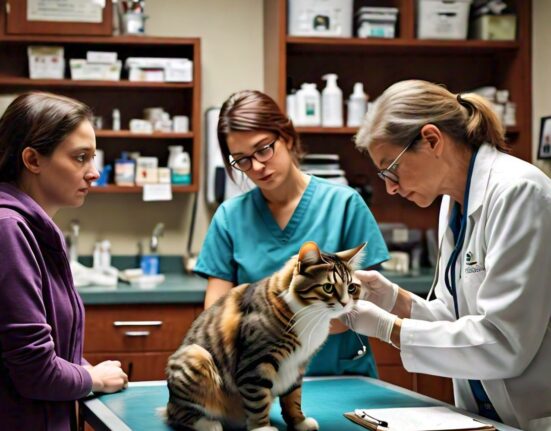As our beloved canine companions age, they require special attention and care to ensure they enjoy a comfortable and happy quality of life. Just like humans, senior dogs go through physical and mental changes that necessitate adjustments in their daily routines and healthcare. In this comprehensive guide, we will delve into the unique needs and challenges of caring for aging dogs, including health concerns and strategies to enhance their overall well-being. Whether you are a long-time dog owner or considering adopting a senior dog, this information will help you provide the best care possible for your furry friend.
Understanding the Senior Dog Life Stage
Before diving into the specific needs of senior dogs, it’s crucial to understand when a dog is considered a senior. Typically, dogs are classified as seniors around the age of 7 to 8 years, although this can vary depending on their breed and size. Smaller breeds tend to have longer lifespans and may not be considered seniors until closer to 10 years old, while larger breeds may enter their senior years at around 6 years of age.
During the senior stage, dogs experience various changes, including:
1. Slower Metabolism
Senior dogs tend to have slower metabolisms, which means they require fewer calories. Adjusting their diet to maintain a healthy weight is essential.
2. Reduced Activity Level
Aging often leads to decreased energy levels and less interest in vigorous play. However, light exercise is still important for maintaining mobility and joint health.
3. Dental Issues
Senior dogs may develop dental problems, so regular dental care is crucial to prevent discomfort and maintain their ability to eat properly.
4. Joint and Mobility Issues
Arthritis and joint stiffness are common in senior dogs. Proper exercise and supplements can help manage these issues and reduce discomfort.
5. Cognitive Changes
Just like humans, dogs can experience cognitive decline as they age. They may show signs of confusion, forgetfulness, and altered sleep patterns.
Meeting the Unique Needs of Senior Dogs
Caring for senior dogs involves addressing their unique needs to ensure they remain happy and comfortable. Here are some essential aspects to consider:
1. Specialized Diet
Senior dogs require a diet tailored to their age and health status. Consult with your veterinarian to choose the right senior dog food that meets their nutritional needs while managing their weight. High-quality senior dog food often contains joint supplements and antioxidants to support overall health.
2. Regular Veterinary Checkups
Frequent vet visits are crucial for senior dogs. Your veterinarian can detect and address health issues early, recommend appropriate vaccinations, and provide guidance on managing chronic conditions. These checkups should include dental examinations and cleaning as well.
3. Manage Weight
Maintaining a healthy weight is vital for senior dogs to reduce the risk of obesity and associated health problems. Adjust their calorie intake and monitor their weight to ensure they stay within a healthy range.
4. Joint Health
Senior dogs are prone to joint issues, so consider joint supplements like glucosamine and chondroitin, as recommended by your vet. Additionally, provide gentle exercise, such as short walks and swimming, to keep their joints mobile.
5. Dental Care
Dental hygiene is often overlooked but is crucial for senior dogs. Regularly brush their teeth, offer dental chews, and schedule professional cleanings to prevent painful dental issues.
6. Mental Stimulation
Combat cognitive decline by engaging your senior dog with puzzles, interactive toys, and gentle training sessions. Mental stimulation can help maintain their cognitive function and keep their minds active.
7. Comfortable Living Arrangements
Make your home senior-dog-friendly by providing soft bedding, non-slip flooring, and easy access to food and water. Consider ramps or steps to help them navigate furniture and stairs.
Common Health Concerns in Senior Dogs
Understanding the potential health issues that senior dogs face can help you identify and address problems early. Here are some common health concerns:
1. Arthritis and Joint Pain
Arthritis is a prevalent issue in senior dogs, causing stiffness and discomfort. Consult with your vet about pain management and mobility aids like orthopedic beds and ramps.
2. Dental Problems
Senior dogs are more susceptible to dental issues, including gum disease and tooth decay. Regular dental checkups and at-home dental care are essential.
3. Vision and Hearing Loss
As dogs age, they may experience gradual vision and hearing loss. Make accommodations in your home and be patient when communicating with them.
4. Heart and Kidney Disease
Senior dogs are at greater risk of heart and kidney diseases. Regular checkups can help detect and manage these conditions.
5. Cancer
Cancer is more common in older dogs. Watch for signs of cancer, such as lumps, changes in appetite, and unexplained weight loss.
Quality of Life for Senior Dogs
The ultimate goal in caring for senior dogs is to ensure they have the best possible quality of life during their golden years. Here are some ways to enhance their well-being:
1. Love and Attention
Senior dogs thrive on love and companionship. Spend quality time with them, provide affection, and maintain their social interactions.
2. Adequate Rest
Senior dog need more rest, so ensure they have a comfortable and quiet place to sleep. Orthopedic beds can provide the necessary support for aging joints.
3. Patience and Understanding
Be patient with your senior dog as they may have accidents or move more slowly. Understand that their needs have changed, and they may require more assistance.
4. Environmental Enrichment
Create a stimulating environment with toys and activities that cater to their reduced energy levels and cognitive function.
5. Palliative Care
If your dog has a terminal illness or is in pain, consider palliative care options in consultation with your veterinarian. The focus should be on keeping them comfortable and pain-free.
In conclusion, caring for senior dogs comes with a unique set of challenges and rewards. By understanding their changing needs and providing appropriate care, you can ensure that your faithful companion enjoys a comfortable and happy life during their senior years. Remember that regular veterinary care and a loving, supportive environment are the keys to ensuring your senior dog’s golden years are filled with love, comfort, and quality of life.















Leave feedback about this